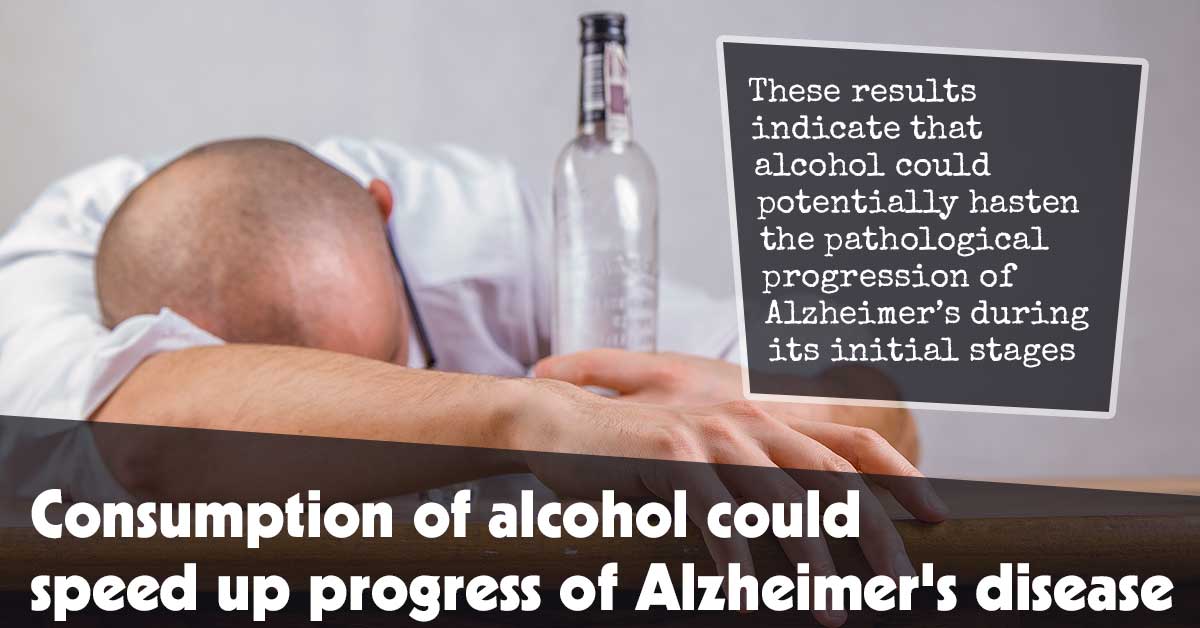According to the Alzheimer’s Association, Alzheimer’s disease accounts for 60% – 80% of dementia cases, making it the most common form of dementia.
Research has indicated that alcohol use disorder is a known risk factor for Alzheimer’s disease, but its impact on Alzheimer’s pathology is still being studied.
A preclinical study demonstrated that brain atrophy can be accelerated by even moderate alcohol consumption, resulting in brain cell loss, and an increase in the number of toxic proteins that accumulate in Alzheimer’s known as amyloid plaques.1✅ JOURNAL REFERENCE DOI: 10.1016/j.nbd.2022.105967
These results indicate that alcohol could potentially hasten the pathological progression of Alzheimer’s during its initial stages.
Researchers utilized Alzheimer’s disease mouse models to examine the effects of voluntary, moderate alcohol consumption on healthy brain function and behavior.
To simulate human drinking behavior, the mice were given the option to drink either alcohol or water for 10 weeks.
The researchers then looked at how voluntary, moderate alcohol consumption changed healthy brain function and behavior and if it changed the pathology linked to the early stages of Alzheimer’s.
The study results revealed that alcohol consumption led to an increase in brain atrophy and a higher number of amyloid plaques, including an increase in smaller plaque numbers, likely setting the stage for plaque proliferation increase in later life.
The researchers also observed that acute alcohol withdrawal increased amyloid-beta levels, which is a major amyloid plaque component that accumulates in Alzheimer’s.
Further analysis revealed that peripheral and brain metabolism was poorly regulated after chronic exposure to alcohol, another way that accelerates the pathology of Alzheimer’s disease. Other research has shown that an increase in blood sugar increases amyloid-beta as well as amyloid plaques.
The current study found that even moderate drinking resulted in blood sugar elevations and insulin resistance markers, which increases not only Alzheimer’s risk but also the risk for other diseases which include cardiovascular disease and type 2 diabetes.
The researchers also observed that moderate use of alcohol changed behaviors related to dementia and anxiety.
These preclinical results indicate that even moderate alcohol consumption can lead to brain injury. Consumption of alcohol could be a modifiable risk factor for dementia and Alzheimer’s disease.



